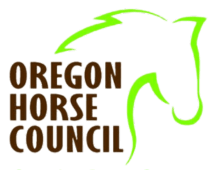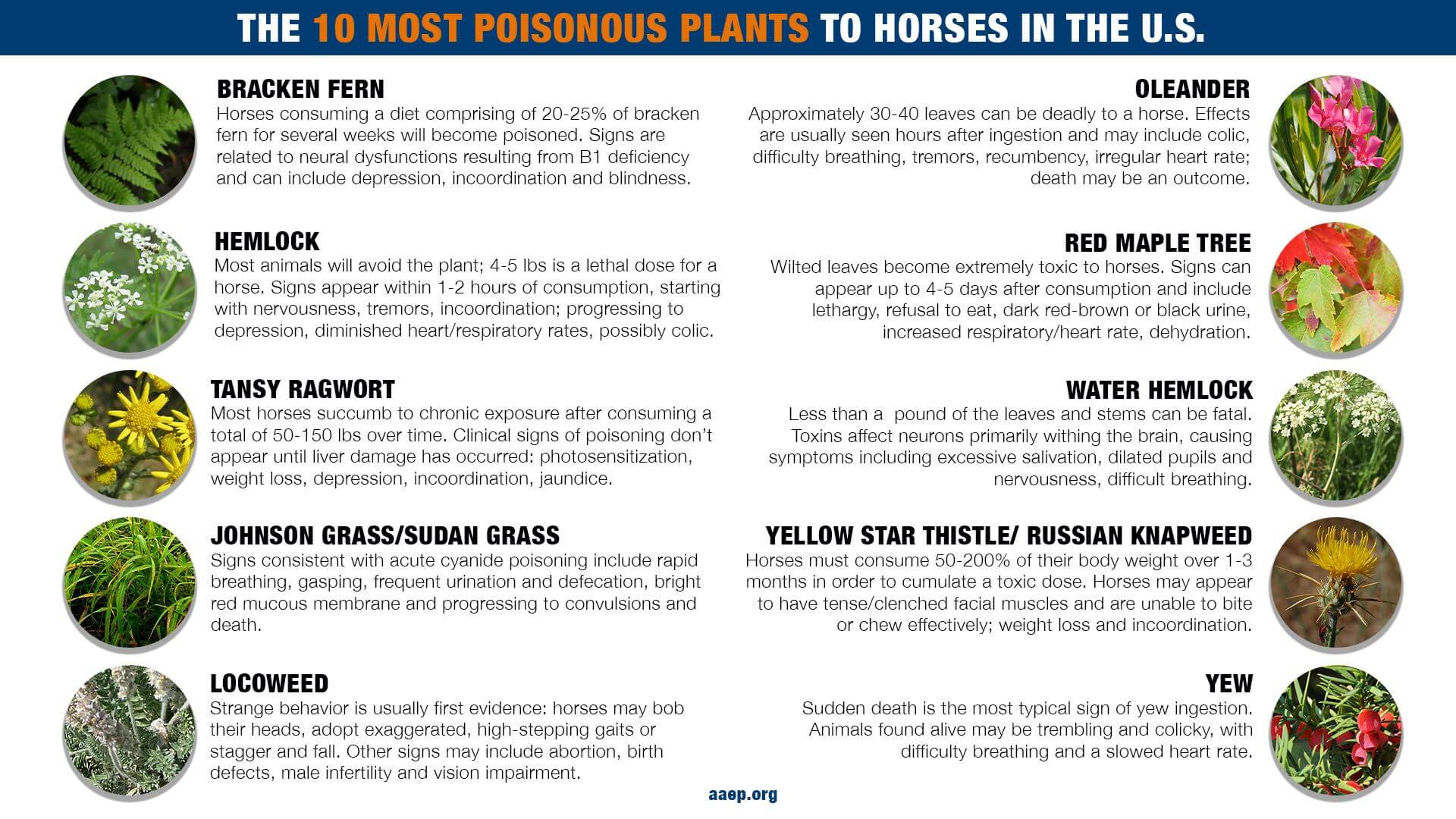Our planet is blessed with the millions of species that we know and love, but let’s not forget that some do not mix successfully. While a 1,000-pound horse has to consume significantly higher quantities of a toxic plant than a smaller animal to be affected clinically, some plants are cause for concern and all poisonous plants are worth recognizing so they can be removed from your horse-keeping areas.
If you suspect your horse has ingested a poisonous plant:
• Remove the horse from the source.
• Contact your veterinarian immediately.
• Attempt to determine how much of the toxic plant was eaten and when it was eaten (small amounts of some toxins can be fatal in a short period of time while other require large amounts to be eaten over several weeks or months).
Please note that another commonly overlooked reason a horse may become poisoned is allowing horses to graze a pasture after it has been sprayed with herbicide, but before the weeds have died and disappeared. As always, contact your veterinarian for more information and guidance!


